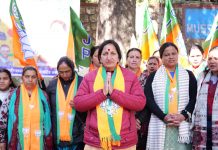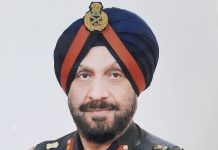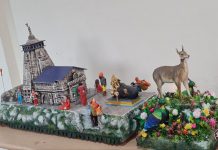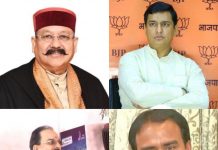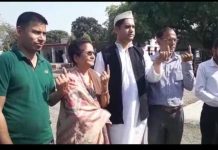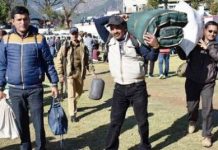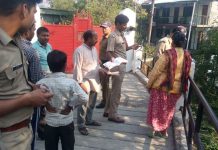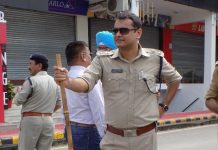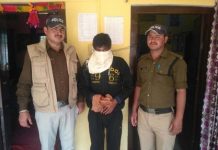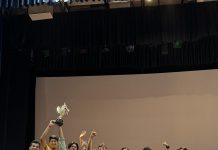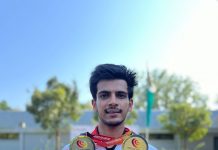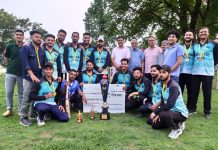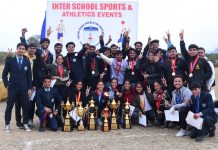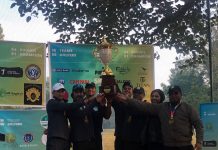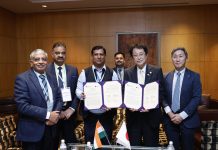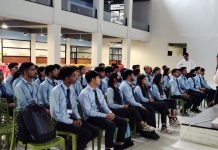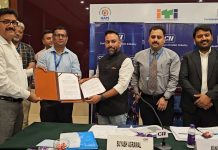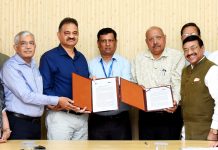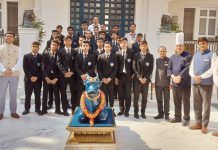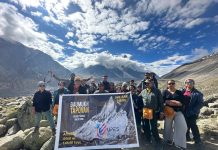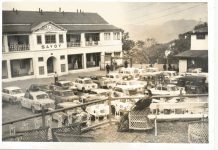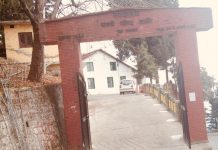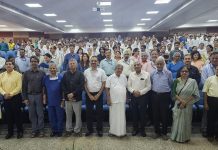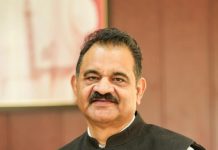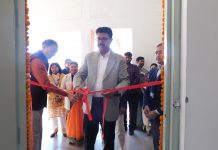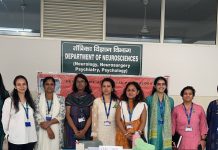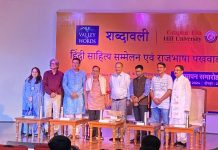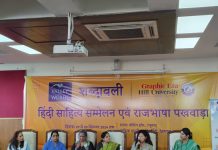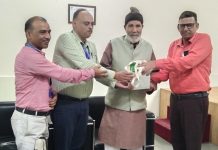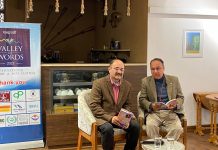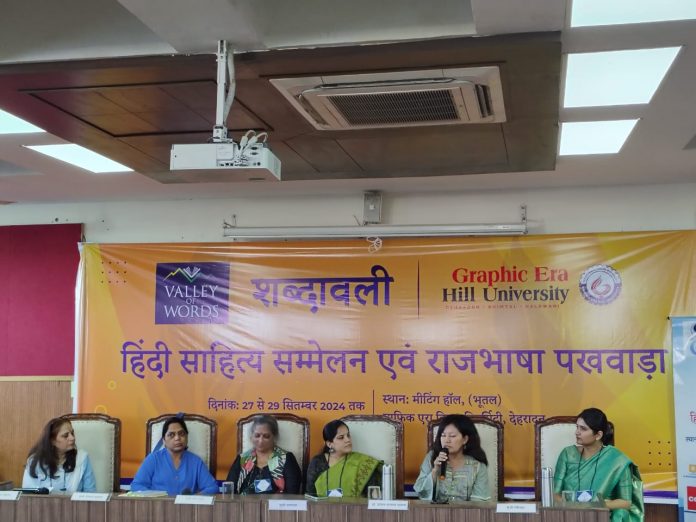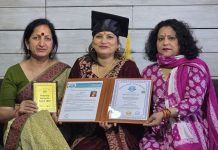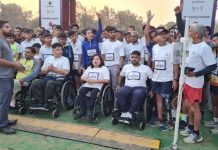Dateline Dehradun: On the second day of the VoW Hindi festival, Graphic Era Hill University became a hub for intellectual exchange, as authors, poets and scholars engaged in rich discussions on revolution, spirituality, and creativity. The day’s events emphasized literature’s role in addressing historical legacies, personal narratives, and societal issues.
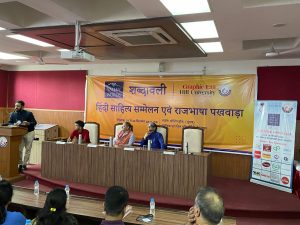
Pic Courtesy: Shivang Yadav
The first session for the day Vicharon Ke Shilpi: Bhagat Singh Ka Bauddhik Yogdan focused on Bhagat Singh’s intellectual contribution on his birth anniversary. Led by Baljinder Nasrali the discussion featured insights from Lakshmi Shankar Bajpai, and Dr Sanjeev Chopra, moderated by Sachin Chauhan. The session went beyond Bhagat Singh’s revolutionary acts, diving into his life stories, personal writings, letters, and speeches that reveal his deep ideological convictions. The speakers examined Bhagat Singh’s views on freedom, equality, and resistance, underscoring his belief in using intellectual discourse to challenge colonial power. His engagement with Marxism, nationalism, and secularism highlighted how his thoughts remain relevant today. The session inspired the audience to reflect on how his legacy continues to shape India’s political and intellectual landscape.
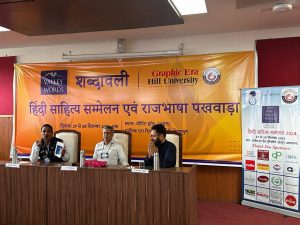
Pic Courtesy: Shivang Yadav
Following this the focus shifted to Amber Pariyan, a story that explores themes of love, longing, and belonging. Balwinder Nasrali, the author, and Subhash Nirav, the translator, engaged in a conversation moderated by Someshwar Pandey. The book originally written in Punjabi and translated into Hindi delves into the tensions between individual aspirations and societal expectations, particularly examining how these play out in the institution of marriage in a modern, evolving world. This novel reflects on personal and social dynamics while addressing questions about the future of relationships in contemporary society. Nasrali paints a picture of the modern world, where old customs and expectations still hold a lot of influence, but people are starting to question whether these traditions are still relevant to their lives.
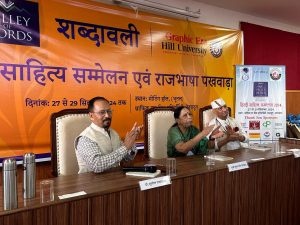
Pic Courtesy: Shivang Yadav
A philosophical discussion followed on Amarattv Ki Oar, a work by Dr Sudha Rani Pandey. Moderated by Sushil Upadhyay, with special commentary from Anil Raturi, the panel discussed the book’s exploration of immortality and human existence. The conversation focused on how the book reflects the timeless human desire for immortality, both in a literal and metaphorical sense. The panellists spoke about how literature often serves as a way for individuals to seek eternal relevance, particularly through their actions, beliefs, and legacy. The session raised important existential questions about life, death, and what it means to leave a lasting impact on the world.
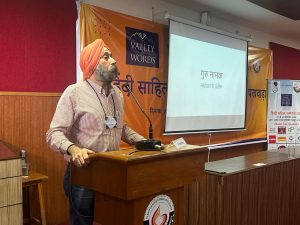
Post lunch, the festival took a spiritual turn with an audio-visual presentation on Guru Nanak entitled Akhandata Ke Prateek: Guru Nanak. Presented by Amardeep Singh, the session highlighted Guru Nanak’s teachings of unity, compassion, and equality. Through a combination of historical insights and visual storytelling, the presentation offered the audience a deep understanding of Guru Nanak’s role in promoting social harmony and religious tolerance. Singh emphasized how Guru Nanak’s message continues to resonate in a world increasingly divided by differences. The presentation encouraged attendees to reflect on the timeless relevance of spiritual leadership in fostering community and global solidarity.
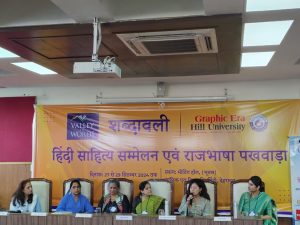
Pic Courtesy: Shalini Butola
The final session of the day, Srijansheelta Ka Stree Vimarsh, moderated by Mamta Kiran provided a platform for female voices in literature i.e. Neelesh Raghuvanshi, Ramita Gurav, Upasana, Joram Yalam Nabam and Sarishma. The discussion focused on how women navigate creative spaces, often breaking societal boundaries to express their experiences. Each panellist shared personal stories of how their work addresses issues of gender inequality, social norms, and empowerment. The panel resonated deeply with the audience, sparking conversations about the evolving role of women in contemporary literature.
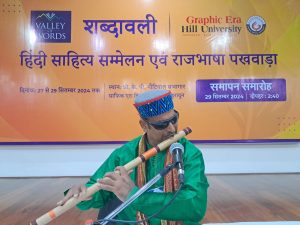
In addition to the literary sessions, the day concluded with a soothing flute recital by Sarju Kumar, which left the audience mesmerized. The day ended on a high note, with participants eagerly anticipating the final day of the festival. Youth poetry recitals and the closing ceremony featuring some of India’s most respected poets promise to leave you asking for more!

